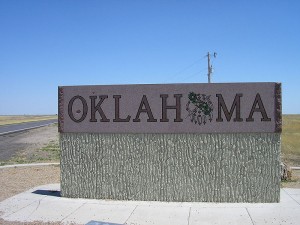 DENVER — An appeals court in Colorado has upheld a lower court opinion that declared Oklahoma’s same-sex ‘marriage’ ban unconstitutional, but not without dissent from one of the judges on the panel, who asserts that the court has no right right to redefine marriage.
DENVER — An appeals court in Colorado has upheld a lower court opinion that declared Oklahoma’s same-sex ‘marriage’ ban unconstitutional, but not without dissent from one of the judges on the panel, who asserts that the court has no right right to redefine marriage.
As previously reported, in January, a federal judge appointed by then-President Bill Clinton ruled against the ban, which had been approved by 76 percent of voters during the November 2004 election.
“Marriage in this state shall consist only of the union of one man and one woman,” the state constitutional amendment reads. “A marriage between persons of the same gender performed in another state shall not be recognized as valid and binding in this state as of the date of the marriage.”
Marriage licenses issued in violation of the law carried misdemeanor penalties.
But U. S. District Judge Terence Kern said that the state constitutional amendment violated the federal Constitution.
“The Court holds that Oklahoma’s constitutional amendment limiting marriage to opposite-sex couples violates the Equal Protection Clause of the Fourteenth Amendment of the U.S. Constitution,” he wrote. “Equal protection is at the very heart of our legal system and central to our consent to be governed. It is not a scarce commodity to be meted out begrudgingly or in short portions.”
The decision was then appealed to the 10th Circuit Court of Appeals in Denver, which upheld Kern’s ruling on Friday.
“Oklahoma’s ban on same-sex marriage sweeps too broadly in that it denies a fundamental right to all same-sex couples who seek to marry or to have their marriages recognized regardless of their child-rearing ambitions,” the majority opinion asserted. “As with opposite-sex couples, members of same-sex couples have a constitutional right to choose against procreation.”
The ruling was handed down by Justices Carlos Lucero and Jerome Holmes, nominated by then-Presidents Bill Clinton and George W. Bush respectively.
But the third judge on the panel, Justice Paul Kelly, nominated by then-President George H.W. Bush, said that the court had no right to redefine the sacred institution of marriage.
“Simply put, none of the Supreme Court cases suggest a definition of marriage so at odds with historical understanding,” he wrote in his dissent. “The Court has been vigilant in striking down impermissible constraints on the right to marriage, but there is nothing in the earlier cases suggesting that marriage has historically been defined as only an emotional union among willing adults.”
“Removing gender complementarity from the historical definition of marriage is simply contrary to the careful analysis prescribed by the Supreme Court when it comes to substantive due process,” he continued. “Thus, any change in the definition of marriage rightly belongs to the people of Oklahoma, not a federal court.”
Alliance Defending Freedom (ADF), a prominent Christian legal organization based in Scottsdale, Arizona, says that it is now considering appeal options.
“Ultimately, the question whether the people are free to affirm marriage as a man-woman union will be decided by the U.S. Supreme Court,” asserted attorney Byron Babione in a press release following the ruling. “If the high court remains consistent with what it held in its Windsor decision, the states will ultimately be free to preserve man-woman marriage should they choose to do so.”
Become a Christian News Network Supporter...


